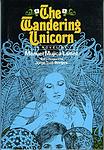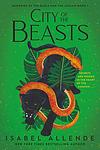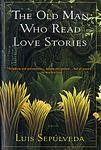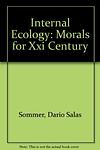The Greatest Chilean, Argentinian "Fiction" Books Since 1950
Click to learn how this list is calculated.
This list represents a comprehensive and trusted collection of the greatest books. Developed through a specialized algorithm, it brings together 300 'best of' book lists to form a definitive guide to the world's most acclaimed books. For those interested in how these books are chosen, additional details can be found on the rankings page.
Genres
Countries
Date Range
Reading Statistics
Click the button below to see how many of these books you've read!
Download
If you're interested in downloading this list as a CSV file for use in a spreadsheet application, you can easily do so by clicking the button below. Please note that to ensure a manageable file size and faster download, the CSV will include details for only the first 500 books.
Download-
1. The House of the Spirits by Isabel Allende
"The House of the Spirits" is a multi-generational saga that explores the lives of the Trueba family, set against the backdrop of political upheaval in an unnamed Latin American country. The narrative is driven by the family's strong and magical women, including clairvoyant Clara and her granddaughter Alba. The story spans over three generations, weaving together personal, social, and political threads, and is rich in elements of magical realism. The novel explores themes of love, violence, social class, and the struggle for power.
-
2. Labyrinths by Jorge Luis Borges
"Labyrinths" is a collection of short stories and essays that explore complex themes of infinity, parallel universes, and the blurred lines between reality and illusion. The narratives often feature protagonists who are scholars or librarians, trapped in surreal, metaphysical landscapes. The author's unique writing style combines elements of magical realism, philosophy, and detective fiction, creating an intricate web of narratives that challenge the reader's perception of reality and fiction.
-
3. The Savage Detectives by Roberto Bolaño
"The Savage Detectives" is a novel that follows the lives of two Latin American poets, Arturo Belano and Ulises Lima, who are founders of a literary movement called "visceral realism." The book is divided into three parts and is narrated by multiple characters, providing different perspectives on the protagonists. The narrative spans over 20 years, following the poets' journey from Mexico City to Europe, Israel, and Africa, as they search for a mysterious poetess and navigate through the world of literature, sex, drugs, and the complexities of life.
-
4. 2666 by Roberto Bolaño
The novel is a sprawling, ambitious work that spans continents and time periods, centering around an elusive, reclusive German author. It intertwines five different narratives: a group of European academics searching for the author, a professor in Mexico dealing with his own personal crises, a New York reporter sent to cover a boxing match in Mexico, an African-American journalist in Detroit, and the horrifying and unsolved murders of hundreds of women in a Mexican border town. The narratives are linked by themes of violence, mystery, and the search for meaning in a chaotic world.
-
5. Hopscotch by Julio Cortázar
This avant-garde novel invites readers into a non-linear narrative that can be read in two different orders, following the life of Horacio Oliveira, an Argentine intellectual living in Paris with his lover, La Maga. The story explores philosophical and metaphysical themes, delving into the nature of reality and the human condition, while also examining the struggles of intellectual and emotional life. The second part of the novel takes place in Buenos Aires, where Horacio returns after La Maga disappears, and where he grapples with his past, his identity, and his place in the world.
-
6. Kiss of the Spider Woman by Manuel Puig
"Kiss of the Spider Woman" is a novel set in an Argentine prison where two cellmates, a gay window dresser and a political revolutionary, share stories to pass the time. The window dresser recounts various films he's seen, which often involve strong, glamorous women, while the revolutionary shares his political ideologies. As they spend time together, they form an unlikely bond, exploring themes of sexuality, oppression, and the power of storytelling.
-
7. Of Love and Shadows by Isabel Allende
Set against the backdrop of a South American country under a military dictatorship, this novel follows the story of a woman journalist and her lover, a photographer, who, while working together, uncover a hidden mass grave in a remote part of their country. Their discovery leads them into danger as they try to expose the truth about the brutal regime ruling their country, while also dealing with their own personal issues and their growing love for each other. The story is a blend of romance and political drama, showing the power of love and courage in the face of oppression and fear.
-
8. Betrayed by Rita Hayworth by Manuel Puig
The novel explores the life of a young boy growing up in a small town in Argentina during the 1930s and 1940s. It is a coming-of-age story that uses a unique narrative structure, incorporating a mix of dialogues, inner thoughts, and film scripts to depict the protagonist's life. The boy's obsession with Hollywood films and glamorous actresses, particularly Rita Hayworth, serves as an escape from his oppressive environment and shapes his understanding of the world. The book also delves into themes of sexuality, identity, and the impact of popular culture.
-
9. Heartbreak Tango by Manuel Puig
"Heartbreak Tango" is a tragicomedy that explores the intertwined lives of the inhabitants of a small town in Argentina. The narrative revolves around the life and death of a charismatic but flawed young man, Juan Carlos, who has relationships with multiple women, each of whom remember him differently. The story is told through a series of letters, diary entries, police reports, and gossip, presenting a multifaceted view of Juan Carlos and the impact he had on those around him. The novel also critiques the shallowness and hypocrisy of society, particularly in its treatment of women.
-
10. Dreamtigers by Jorge Luis Borges
"Dreamtigers" is a collection of short stories, essays, and poems that delve into the realm of metaphysics, infinity, mirrors, and changing identities. The book explores the author's fascination with the dream world and the blurred boundaries between reality and imagination. The narrative is filled with complex themes, paradoxes, and illusions, often inspired by the author's own experiences and his love for literature and philosophy.
-
11. The Witness by Juan José Saer
"The Witness" is a novel that explores the life of a young European boy who is the only survivor of a shipwreck in the 16th century. He is found and raised by a tribe of Indians in South America, where he spends ten years of his life. The boy is eventually found by a band of Spanish conquistadors and returns to Europe, where he becomes a well-respected scholar. The story unfolds as the man, now in his 90s, recounts his experiences and struggles to reconcile his European identity with his decade-long immersion in the tribal culture.
-
12. La Brecha by Mercedes Valdivieso
"La Brecha" is a groundbreaking Chilean novel that delves into the life of a middle-class woman who, after years of conforming to traditional gender roles and a subservient position within her marriage, begins to question the societal norms that have long dictated her existence. As she becomes increasingly aware of the oppressive structures surrounding her, she embarks on a journey of self-discovery and liberation. The novel explores themes of feminism, identity, and personal freedom, challenging the status quo of the time and advocating for the empowerment of women to break free from the constraints imposed by a patriarchal society.
-
13. All Fires The Fire by Julio Cortázar
"All Fires The Fire" is a collection of short stories that explores the complexities of human relationships and the blurred lines between reality and imagination. Through vivid and imaginative storytelling, the author delves into themes of love, desire, and the search for meaning in a world filled with uncertainty. Each story presents a unique and thought-provoking narrative, inviting readers to question the boundaries of their own perceptions and the nature of existence itself.
-
14. The Censors by Luisa Valenzuela
"The Censors" is a satirical short story that delves into the life of a man who takes a job as a censor at a government agency in an attempt to intercept and approve his own letter, which he had previously sent abroad. As he becomes increasingly absorbed in his role, he starts to censor letters with zeal, losing sight of his original purpose. The story serves as a cautionary tale about the corrupting influence of power and the ease with which one can become complicit in oppressive systems, ultimately leading to a grim and ironic conclusion where the protagonist falls victim to the very system he sought to manipulate.
-
15. The Wandering Unicorn by Manuel Mujica Lainez
"The Wandering Unicorn" is a historical fantasy novel that weaves a tapestry of medieval legends, chivalric adventures, and magical realism. It follows the journey of a young unicorn who, under the guise of a beautiful page, seeks to protect Melusine, a cursed fairy who is half-woman, half-serpent. Set against the backdrop of the Crusades, the narrative intertwines the unicorn's quest for redemption and love with a rich cast of characters, including knights, sorcerers, and mythical creatures. The story delves into themes of immortality, transformation, and the enduring power of myth, all while painting a vivid picture of a bygone era filled with enchantment and intrigue.
-
16. Santa Evita by Tomás Eloy Martínez
"Santa Evita" is a fictionalized account of the life and death of Eva Peron, the beloved First Lady of Argentina. The book delves into the mysterious journey of her embalmed corpse which was moved around the world and hidden for 16 years after her death. The narrative, interwoven with historical facts, explores the cult-like fascination and devotion that surrounded her during her life and continues after her death.
-
17. The Impenetrable Madam X by Griselda Gambaro
"The Impenetrable Madam X" is a provocative play that delves into the complexities of human relationships and societal expectations. Set against a backdrop of surrealism and absurdity, the narrative follows the titular character, a woman shrouded in mystery and power, who interacts with various other characters in a series of disjointed scenes. Through sharp dialogue and symbolic interactions, the play explores themes of identity, power dynamics, and the struggle for understanding within the confines of a world that oscillates between the real and the fantastical. The work challenges audiences to question the nature of reality and the masks people wear in their daily lives.
-
18. City of the Beasts by Isabel Allende
A 15-year-old boy is forced to move in with his eccentric grandmother after his mother falls ill. Together, they embark on a journey to the Amazon rainforest in search of a legendary, healing beast. Along the way, they encounter various challenges, including dangerous animals, harsh environments, and a group of indigenous people with mystical powers. The boy learns to overcome his fears and prejudices, forming a strong bond with the indigenous people and the rainforest itself.
-
19. We All Love Glenda So Much And Other Tales by Julio Cortazar
This collection of short stories delves into the surreal and the everyday with equal finesse, exploring the boundaries of reality and the quirks of human relationships. The narratives range from the titular tale, which examines the obsessive adoration of a famous actress, to more abstract and fantastical explorations of human experience. The author's masterful prose and innovative storytelling techniques invite readers to question the nature of truth and fiction, often blurring the lines between the two, while presenting a series of vignettes that are both thought-provoking and emotionally resonant.
-
20. The Old Man Who Read Love Stories by Luis Sepúlveda
The book tells the story of an elderly man who, having settled in a remote Amazonian village, develops a passion for reading romance novels to escape the monotony of his daily life. His peaceful existence is disrupted when he is called upon to track down an ocelot that has been killing the local villagers' animals. As he ventures into the jungle, his journey becomes both a physical and emotional adventure, intertwining his love of literature with his deep respect for nature, and ultimately leading him to confront not only the wild cat but also the complexities of human nature and love.
-
21. Internal Ecology Morals For Xxi Century by Dario Salas Sommer
This book delves into the intricate relationship between individual moral development and the broader ecological balance of our planet, proposing that the environmental crises of the 21st century are deeply intertwined with the moral and ethical decay observed in contemporary society. The author argues that by fostering a deeper understanding of our internal ecology—our thoughts, emotions, and spiritual well-being—we can cultivate a more harmonious relationship with the external world. Through a blend of philosophical insight and practical guidance, the text invites readers to embark on a journey of personal transformation as a foundational step towards addressing the global environmental challenges of our time, emphasizing the critical role of individual responsibility and ethical conduct in shaping a sustainable future.
-
22. Blow Up And Other Stories by Julio Cortázar
This collection of short stories delves into the surreal and the everyday with a blend of the fantastic and the mundane, offering a window into the human condition through a series of innovative narratives. The stories challenge the boundaries of reality, exploring themes of existentialism, the nature of time, and the intricacies of human relationships. The author's unique style weaves together the ordinary with the extraordinary, creating a tapestry of experiences that prompt readers to question their perceptions of the world around them. Each tale invites introspection and analysis, making the collection a staple of magical realism and a profound exploration of the complexities of life.
-
23. A Personal Anthology by Jorge Luis Borges
This anthology is a curated collection of stories, essays, and poems handpicked by the author himself, reflecting the breadth and depth of his literary prowess. The compilation showcases the author's fascination with metaphysical concepts, labyrinths, mirrors, and the nature of reality and fiction. The works within are characterized by intricate narratives, philosophical musings, and a blend of the mythical with the scholarly, offering readers a glimpse into the author's vast intellectual landscape and his love for literature, history, and philosophy. Through this personal selection, the author invites readers to journey through a labyrinthine library of the mind, where the boundaries of time and space are as malleable as the written word.
-
24. The Obscene Bird Of Night by José Donoso
This novel is a labyrinthine exploration of identity, madness, and the nature of reality, told through the fragmented narrative of a reclusive man who has lived his life in seclusion on a decrepit estate. As the protagonist delves into his past, he recounts his experiences among the deformed and the destitute, the aristocracy and the servants, while grappling with his own fears and illusions. The narrative weaves a tapestry of grotesque imagery, mythological allusions, and a collapsing social order, challenging the reader to distinguish between truth and fabrication in a world where the boundaries of sanity are blurred.
-
25. Distant Star by Roberto Bolaño
"Distant Star" is a chilling novel set in Chile following the 1973 coup that overthrew Salvador Allende. The story focuses on a character who uses his position as a member of the Chilean Air Force to commit heinous acts of violence. His fascination with poetry and aerial acrobatics is interwoven with his terrifying actions, creating a disconcerting contrast. The narrative explores the horrific realities of political upheaval, the fine line between art and brutality, and the long-lasting effects of trauma.
Reading Statistics
Click the button below to see how many of these books you've read!
Download
If you're interested in downloading this list as a CSV file for use in a spreadsheet application, you can easily do so by clicking the button below. Please note that to ensure a manageable file size and faster download, the CSV will include details for only the first 500 books.
Download



















